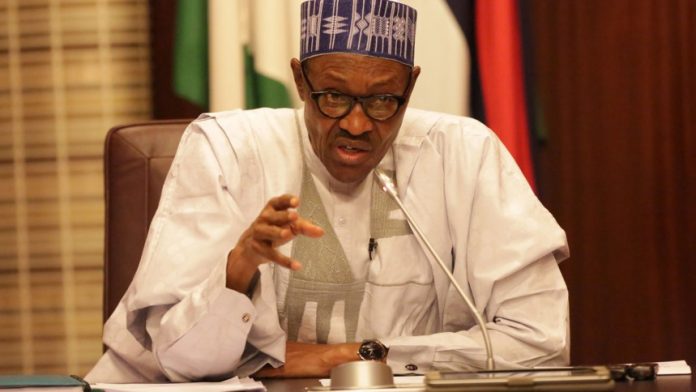Nigeria President Muhammadu Buhari has directed Ministries, Departments and Agencies (MDAs) to comply with the ongoing transition of all government operations to digital platforms for efficient and effective service delivery to promote more inter-agency synergy.
Speaking at the opening ceremony of the e-NIGERIA 2019 Conference on the Nigerian Digital Economy held at the International Conference Centre (ICC), Abuja Buhari said the transition to the digital economy was no longer optional for the MDAs, but “an absolute necessity” following the launch of the e-government master plan.
President Buhari noted that a directive in 2018 that all government-funded ICT projects must be reviewed and cleared by the National Information Technology Development Agency (NITDA) saved the country over N16.8 billion.
Buhari said the e-government master plan will further consolidate government successes to improve operations among the different government MDAs.
The president explained that all government institutions are required to create a Digital Transformation Technical Working Group that will work with the Ministry of Communications and Digital Economy to ensure seamless and coordinated implementation of projects, programs and policies.
He said the Nigerian e-Government Interoperability Framework, the Enterprise Architecture and the Nigeria Data Protection Regulation are in place and all MDAs are expected to comply with the policies.
Buhari noted that the digitisation of key operations in public service such as the use of the Bank Verification Number (BVN), Treasury Single Account (TSA) and the Integrated Payroll and Personnel Information System (IPPIS) has enabled the government to save cost and fight corruption.
The President said the Federal Ministry of Communications and Digital Economy will develop training and sensitization programs which will be rolled out across all key MDAs with immediate effect to ensure seamless implementation of the master plan.
President Buhari pointed out that the push for more job creation and diversification of the economy received a boost in the second quota with the ICT sector contributing 13.85 per cent to the Gross Domestic Product (GDP), quoting figures from the National Bureau of Statistics for 2019.
“This clearly shows the importance and potential of the ICT sector to our job creation and economic diversification agenda,” Buhari said.
“We shall continue to encourage and support such digital entrepreneurs to develop innovative solutions for local and global challenges.”
The President said the Federal Ministry of Communications was re-designated Federal Ministry of Communications and Digital Economy to refocus on the emerging value of digitalization all over the world with a mandate to develop and implement a harmonized and well-coordinated digital economy policy and strategy for Nigeria.


